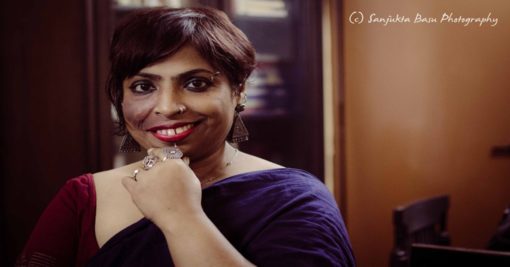Q) What is the most terrifying thing about social media today? Can this beast be tamed?
A) Undoubtedly fake news and fake news makers. You see be it any resource, knowledge, access is always overtaken by those who are privileged. 10-15 years ago when we got internet we were thrilled because we thought it was going to revolutionize and democratize media like never before, it would give voice to the poor downtrodden voiceless. To some extent it did, but it was too little. Within a few years internet or as we now call it social media, as a new resource was being used for commercial purposes, to aid capitalism and consumerism. And now political parties using it to peddle their agenda, of all kinds. They are spreading fake news, doctored videos, photoshopped images, false quotes. It is only getting stronger and stronger and there’s no sign of it being controlled.
I don’t know how to control the menace. I think the SM platforms have to take the first responsibility. Only they have the best mechanism to check fake stories, hate speech etc.
Q) Do you have a favourite social media campaign that you think helped bring about positive and sustainable change on the ground?
A) I can’t say honestly, I was myself briefly associated with the Bell Bajao campaign of Delhi based NGO Breakthrough India. I would say it is my favourite one. In short period it had massive outreach, it became a case study and all of that, but how much was the impact at ground, I can’t tell. Now that’s the tricky part in all social media campaigns, we need to figure out a way to properly measure the offline impact of online campaigns. Another one obviously is the #MeToo campaign last year, it was phenomenal. It definitely changed people’s perception about women’s consent.
Q) Women, the world over face a particularly vicious form of trolling online. Could you please share some of your own experiences? How do you propose we can go about creating safe spaces for women online?
A) This space isn’t enough to share my experience, I’d have to write a book for that. I have a folder full of thousands upon thousands screenshot of abuses I get. Most common ones are about me being fat, having protruded teeth, having younger boyfriends and what not. Some of the tweets are so abusive that other people would even find it difficult to read them, and I get at least 100s. See, the only way is to organize and fight back. We women who are most commonly attack we should watch each others back, fight off abuses. Keep zero tolerance for abuse block and report them. Sometimes we have to take the trouble of taking matters offline in real file FIR with cyber police. I have done that, and these things work.
Q) Many people argue that marginalised and vulnerable communities rarely have a voice online. What do you think we can do to give a voice to the subalterns? How can we make social media more inclusive?
A) To begin with, we have to make the social media space safe for people to raise valid issues, criticize the powers that be without threats, intimidation and being called “anti-national”. Mobile internet outreach in India is growing rapidly, the marginalized people would find their voice but if the moment they make themselves heard they are viciously trolled abused and sedition cases are slapped against them, who can dare raise voice? Today, if you post a joke against a powerful politician from ruling party you would be thrown in jail for months. At same time when blatantly false news, that leads to violence, is spread by a member or supporter of a popular party, alas no action is taken. We have to fiercely defend any attack on free speech, and also control hate speech and trolling.
Q) Do you think democratic and secular voices can unite on social media and fight fake news and hate? How do you propose we do this?
A) Absolutely they can. It is only a matter of will and determination. And of course money. That is the greatest tragedy. Internet, the freely available democratic media though not totally driven by money, allows those with greater financial and other resources to buy and sell manufactured narratives. But democratic secular voices are already uniting and fighting back, the political scene has already changed. Till two years ago, there was only one type of narrative prevalent. It was easy to spread fake news but not anymore. Self-motivated truth warrior like SM Hoax Slayer, BOOM and Alt News have emerged. Moving forward we should have a common forum sort of, a helpline / a Twitter handle / a Facebook group we can reach out to, to report fake news or trolling, we have to run awareness campaigns, both online and offline.





